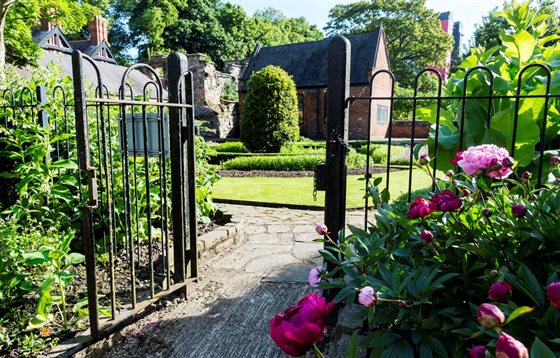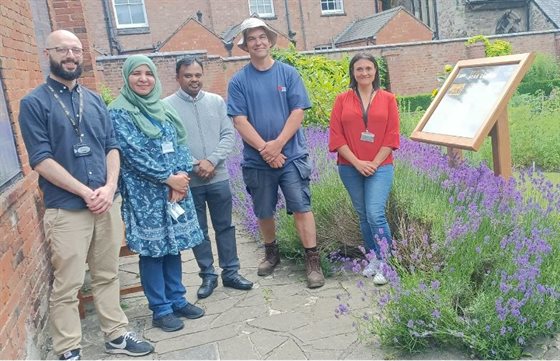De Montfort University Leicester (DMU) has been named one of the UK's most wildlife-friendly, according to new report.
The institution has been recognised as one of the UK’s leading universities for looking after wildlife – on campus and in the wider community.

A new study by Ark Wildlife shows DMU is in the top 10 institutions for its work to promote wildlife, according to criteria such as having protection policies, partnerships with organisations and funding for local biodiversity activities.
The study, led by wildlife care experts Ark Wildlife, surveyed all UK universities on their wildlife initiatives and support – on and off campus.
DMU’s work includes:
• Turning old wellies into plant pots and revitalised Henry Hoover bases to give them a new lease of life as planting troughs
• Growing herbs in our garden in Trinity House are used in the kitchens of the Riverside Café
• Turning over land for a new student allotment which is based near Queens Building
• Creating more habitats for wildlife across campus
• Staff and student litter picks
• Volunteering work to introduce beehives in schools and parks
DMU commits to promoting biodiversity on its grounds with its Biodiversity Policy. Plus, it participates in initiatives such as the SeeD grant scheme which provides funding for student and staff led projects on sustainability.
The institution's contribution to local wildlife is also evident in the opportunities for staff and students to participate in wildlife activities, including the Hedgehog Friendly Campus project which
DMU achieved the silver standard.Karl Letten, sustainability manager, said: “It’s very exciting to be ranked amongst the most wildlife friendly universities in the UK and to have our work on biodiversity acknowledged in this way.
“We understand how connecting with wildlife benefits the physical and mental wellbeing of our staff and students, as well as contributing to our sustainability goals. Our wildlife work is also very popular on our social media with over 750,000 views of our hedgehog videos on TikTok. Just search for SustainableDMU to watch the videos.”
 Researchers are using a new method of plant DNA barcoding to identify varieties
Researchers are using a new method of plant DNA barcoding to identify varieties DMU’s Enactus Society was shortlisted for its sustainability work in this year’s Leicestershire Innovation Awards. They have created and run projects across the city working with Sustainable DMU and the university’s SDG Hub work, led by Mark Charlton, associate director of sustainable development.
How do other UK universities compare?
Almost a third (41 from 122) of the universities who responded scored top marks, by supporting wildlife with a number of active measures.
The majority (84%) of universities who responded are involved in at least one initiative for local wildlife, though there’s still plenty of room for improvement among UK universities.
The most commonly overlooked factor is biodiversity or wildlife activities for students: more than a quarter (35 from 122) of universities fail to offer these.
Similarly, 31 universities have no policies in place for protecting wildlife, making animals on campus more vulnerable. The findings highlight the gap among UK universities, and will lead to calls for higher standards of wildlife support and protection.
Sean McMenemy, director at Ark Wildlife, said: “It’s clear that some universities are taking wildlife conservation extremely seriously, and it’s great to see. They’re really in tune with the local environment, providing invaluable habitats to animals in the area.
“Importantly, the most wildlife-friendly universities are actively encouraging students to become involved. This will breed greater awareness of conservation methods and just how vital wildlife is to the UK. Hopefully, it’ll also instil a lifelong love of animals and the environment in their graduates.”
Posted on Wednesday 22 March 2023